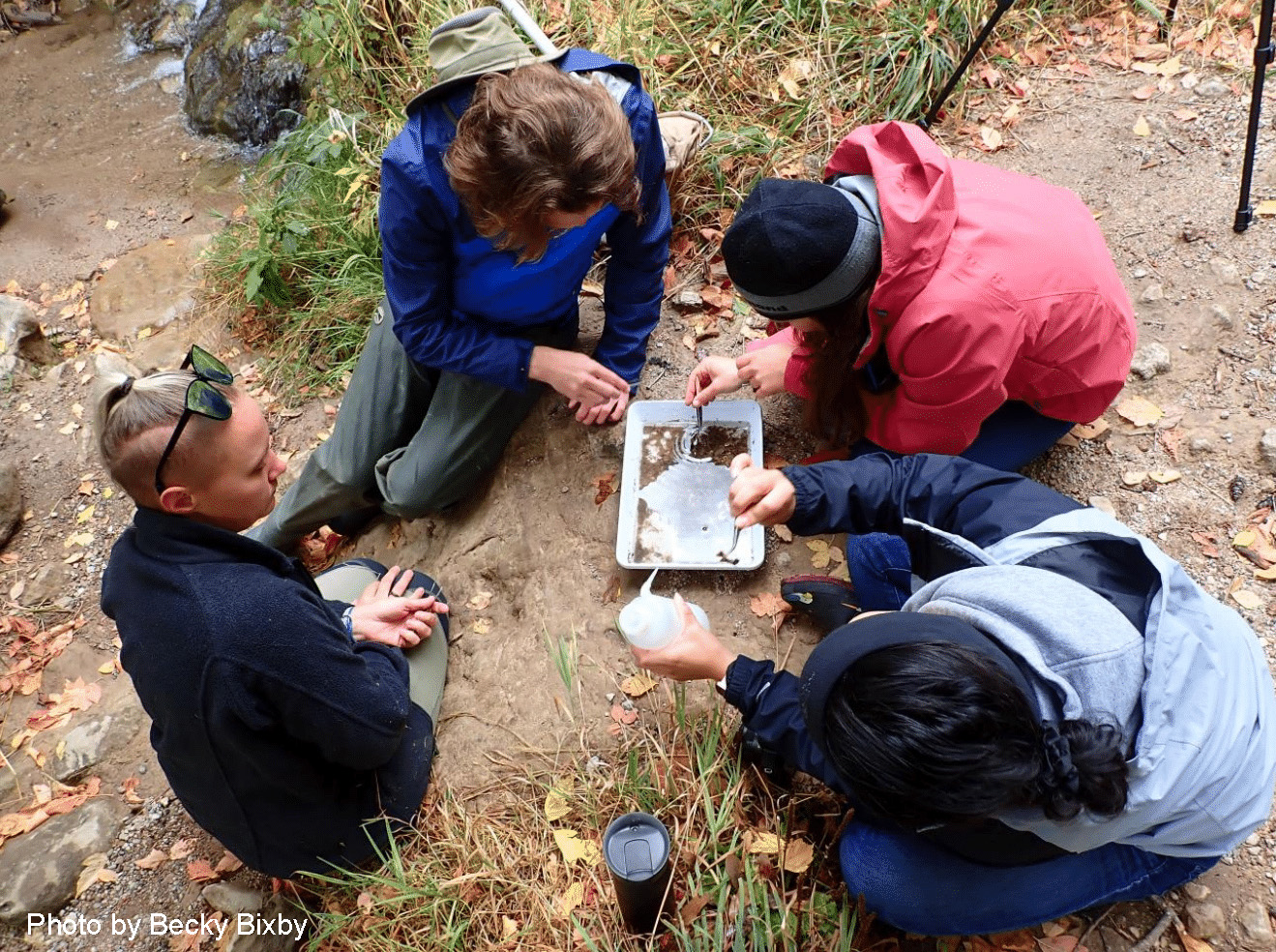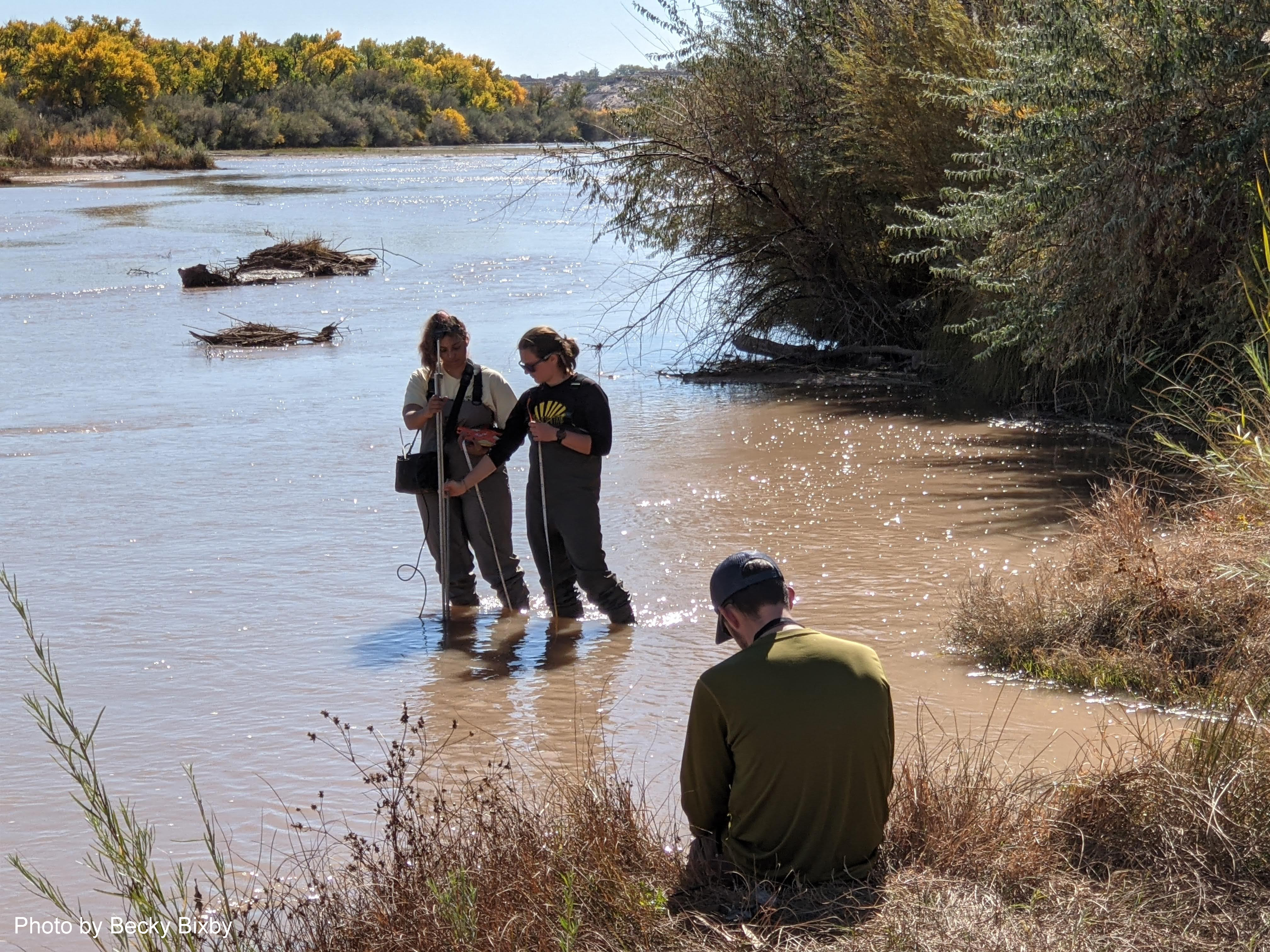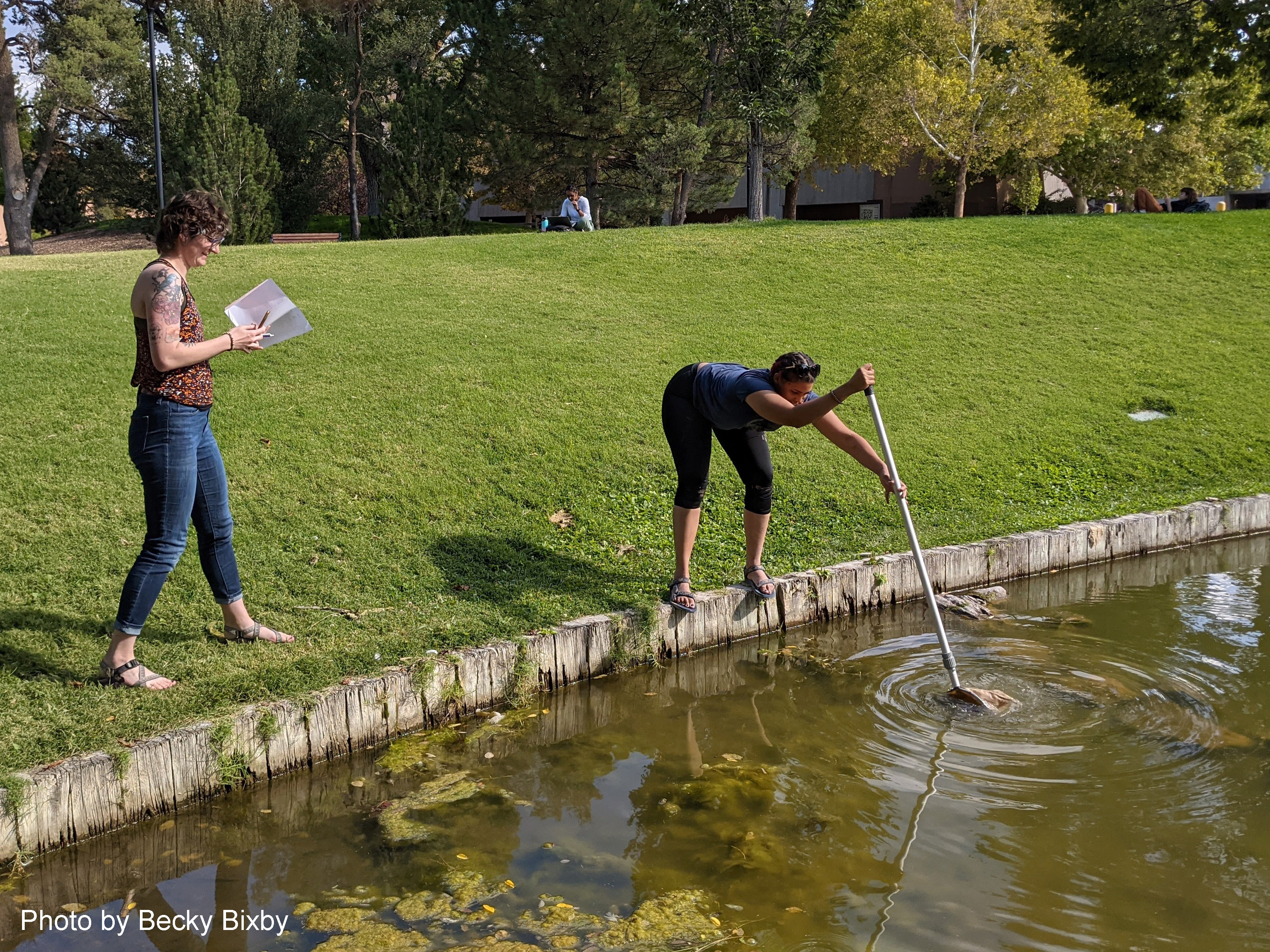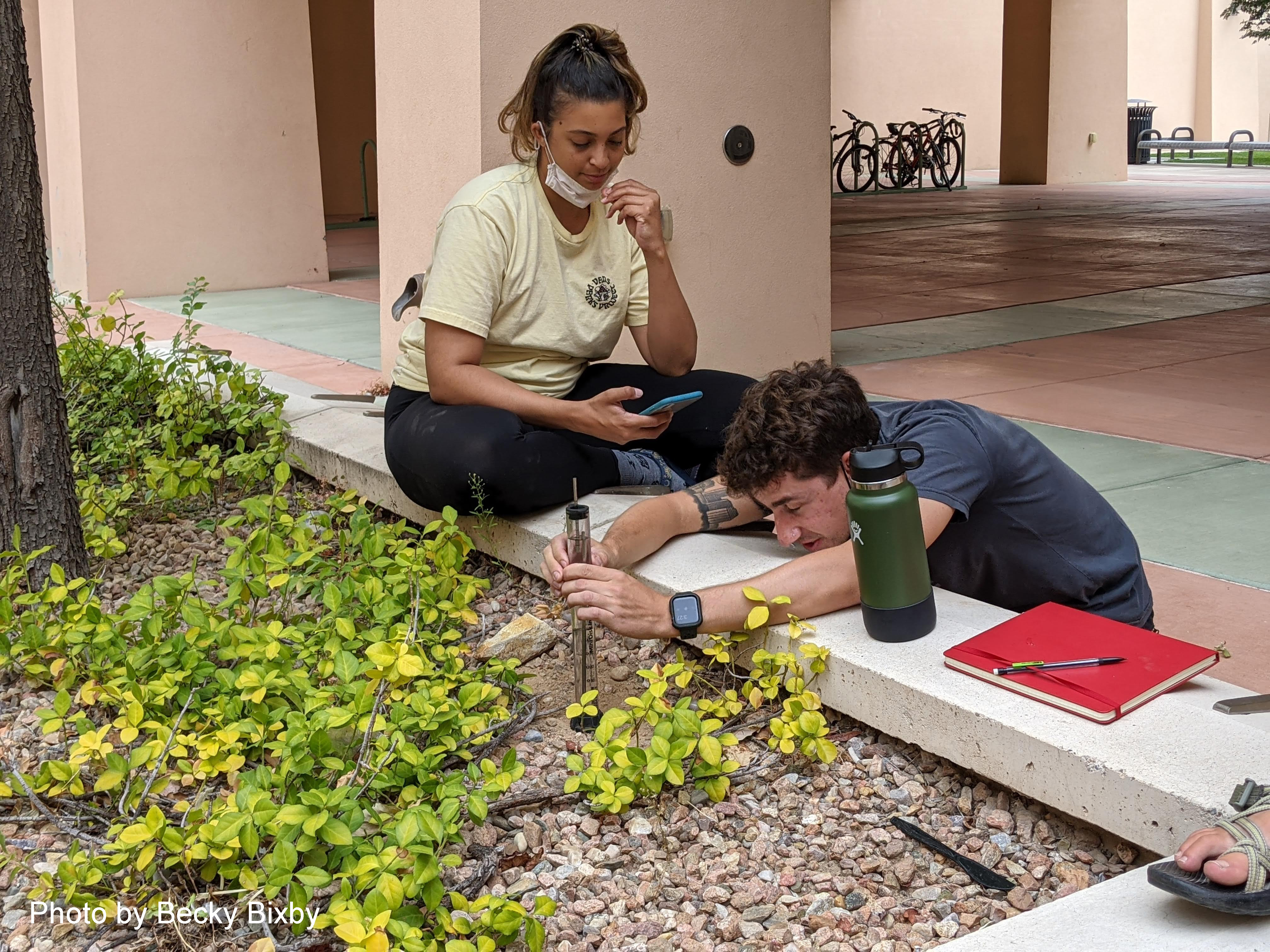Field Problems (WR 573)
Currently taught every fall semester
Field Problems is a 4-credit, intensive, field-themed methods course based on watershed assessment and monitoring.
|  |
 | The second half of the course is all about the data collected from two local stream sites (Las Huertas Creek in the northern Sandia Mountains and East Fork of the Jemez River, Valles Calderta National Preserve) during longer field days. Get muddy! Those data become the basis for the final class projects. Students will develop a class watershed monitoring paper and presentation based on the expertise they gain through their field and classroom experiences. Students will learn methods, analyze data, and synthesize data to make recommendations related to watershed assessment. The course will conclude with a group public presentation highlighting the results of the class. |
 |  |
Data collected at Las Huertas Creek and the Jemez River are deposited in Dryad and publicly available. For questions about the course or data, contact Dr. Becky Bixby (bbixby@unm.edu) and Dr. Gerhard Schoener (GSchoener@sscafca.com). |
